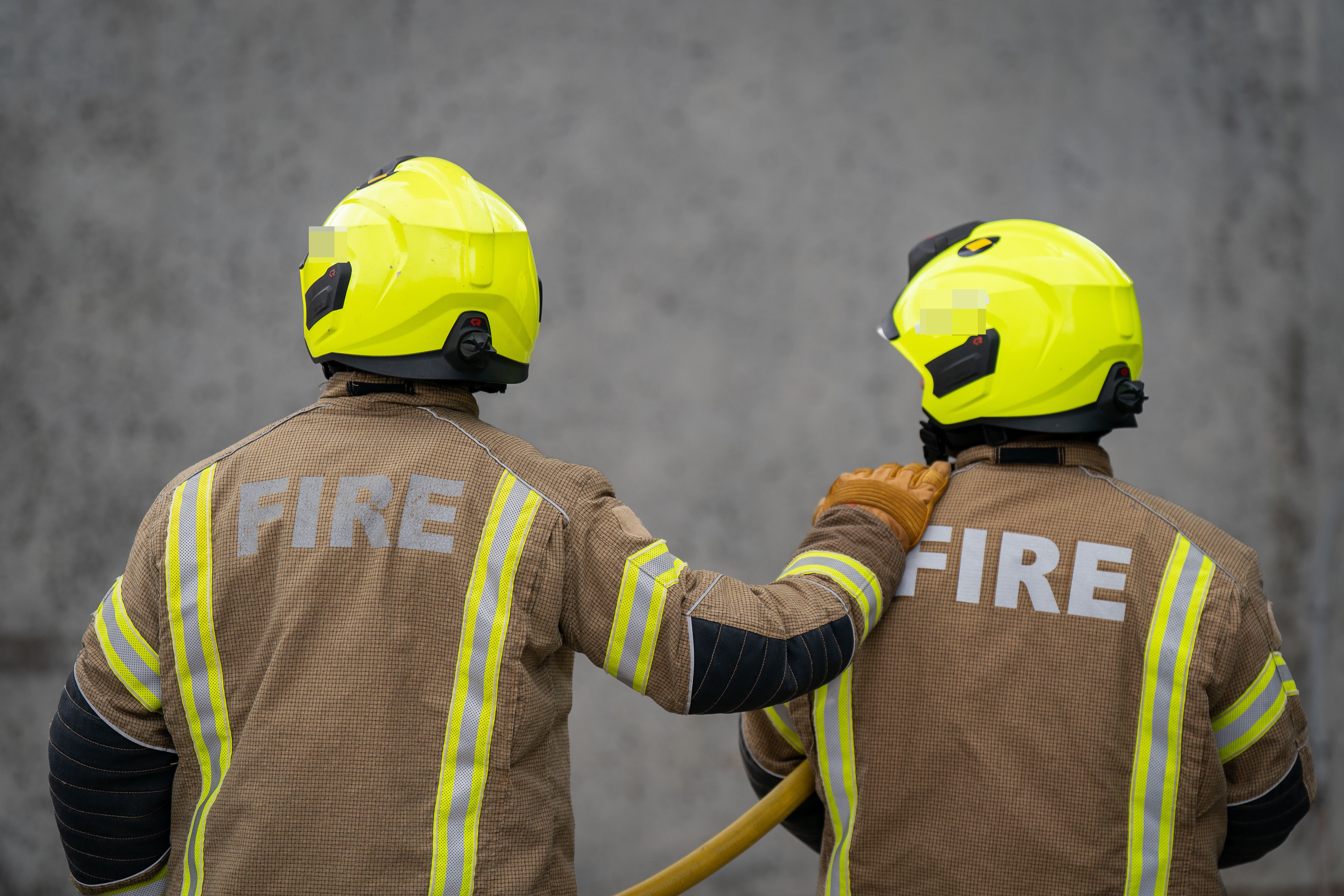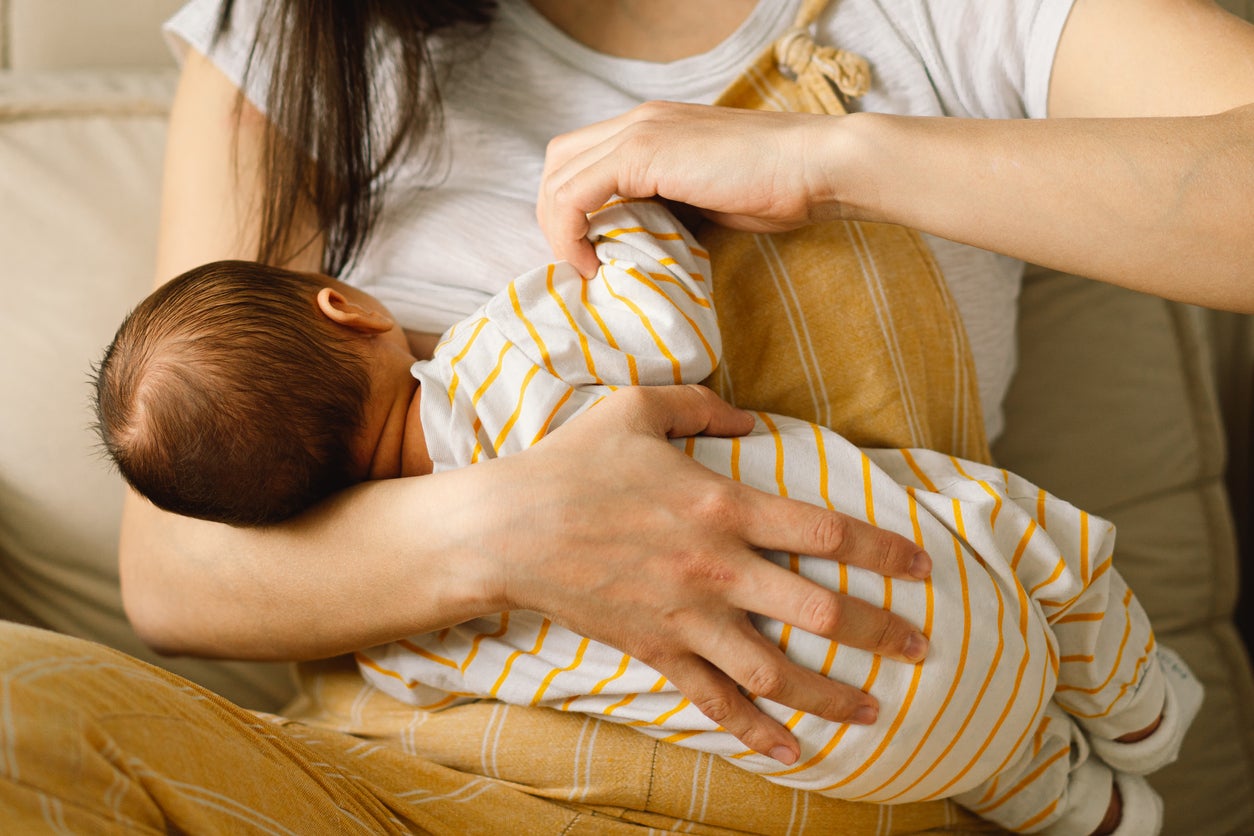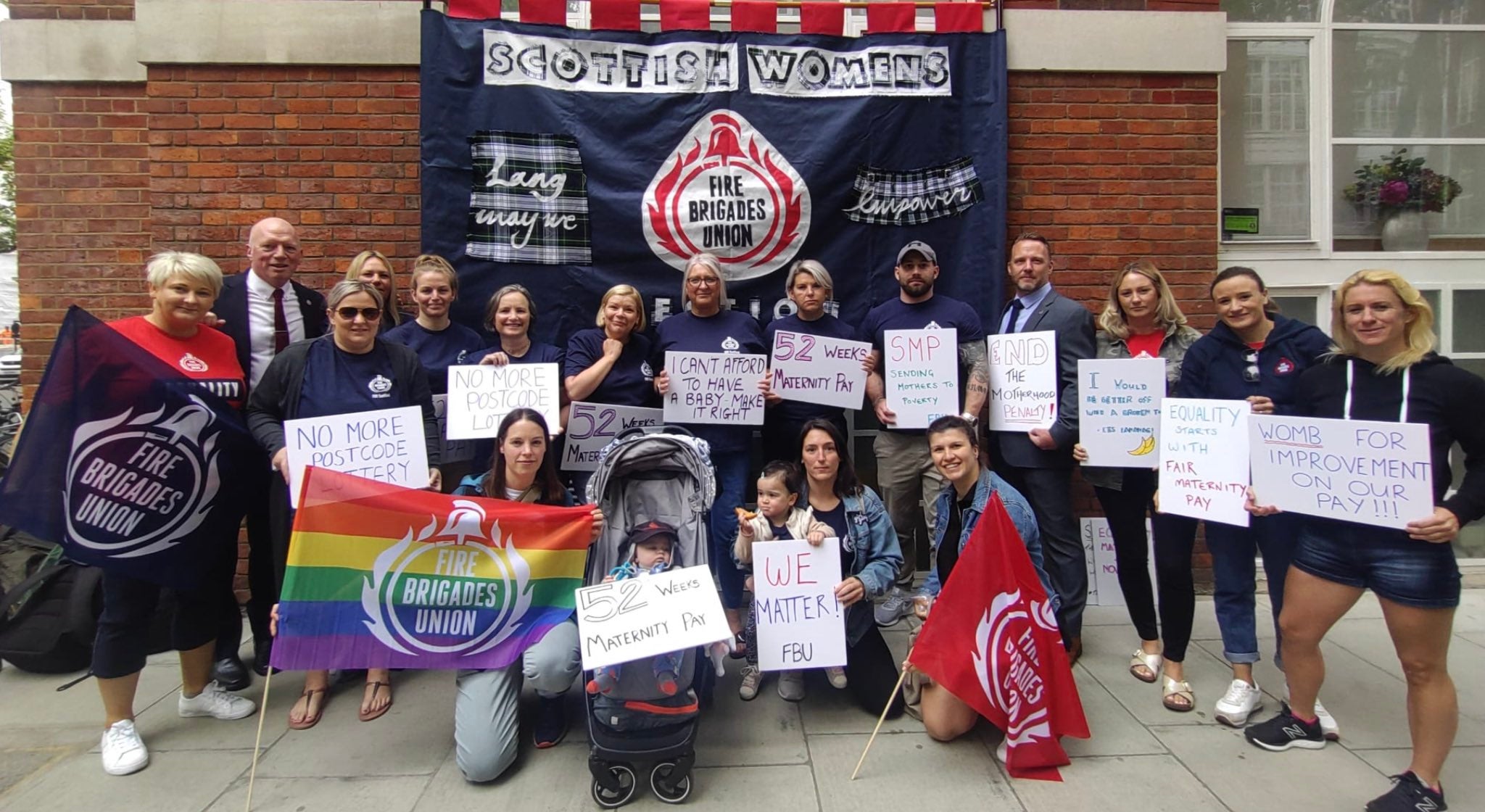‘I had to give up breastfeeding to return to firefighting weeks after giving birth to pay my bills’
Exclusive: Campaign calls for better maternity pay for firefighters as union warns it’s a ‘postcode lottery’

Your support helps us to tell the story
From reproductive rights to climate change to Big Tech, The Independent is on the ground when the story is developing. Whether it's investigating the financials of Elon Musk's pro-Trump PAC or producing our latest documentary, 'The A Word', which shines a light on the American women fighting for reproductive rights, we know how important it is to parse out the facts from the messaging.
At such a critical moment in US history, we need reporters on the ground. Your donation allows us to keep sending journalists to speak to both sides of the story.
The Independent is trusted by Americans across the entire political spectrum. And unlike many other quality news outlets, we choose not to lock Americans out of our reporting and analysis with paywalls. We believe quality journalism should be available to everyone, paid for by those who can afford it.
Your support makes all the difference.A female firefighter says she had to give up breastfeeding and return to work just 15 weeks after giving birth because she could not afford to live on her maternity pay.
The mother of three said the £1,100 a month she received – half of her usual salary – was not enough to cover her mortgage and feed her other children, which left her with no choice but to go back to work.
She was also concerned about the risks to her baby had she continued breastfeeding and returned to fighting fires, as well as her own recovery in a physically demanding job.
Rosie, 33, who did not want to disclose her surname as she is still working in the fire service, told The Independent: “My goal was to breastfeed for nine months, but I had to stop when I went back to work 15 weeks after giving birth. I also wasn’t mentally or physically ready as our work is so demanding. But I had no other choice, as I had another two older children to feed and a mortgage to pay. Now, my partner and I are working back-to-back to pay our bills, and I feel like I’ve had motherhood stripped away from me.”

When a mother is breastfeeding, she must not do any operational duties due to the risks of exposing her baby to harmful contaminants picked up on the job, either through the milk or the action of breastfeeding, according to a 2020 report by the University of Central Lancashire on minimising firefighters' exposure to toxic fire effluents.
When she was breastfeeding at work, Rosie said she was isolated from members of her watch and could only be in restricted areas for her and her baby’s safety, as advised by her fire service. But she felt “vulnerable and stressed” when she attempted to express milk there, always facing the risk of picking up toxic contaminants. She was also put on light duties, so not only was she not spending time with her baby, she was not doing her usual job.
Rosie made the difficult decision to give up breastfeeding entirely. However, returning to firefighting brought with it the risk that she could bring contaminants back home from a job to her baby if the correct decontamination processes were not carried out.
A study published in Scientific Reports this year of over 10,000 UK firefighters found several possible routes that contaminants could be transferred from fire incidents back to workplaces and homes, including when firefighters take their PPE home to clean.

While some fire services have improved their maternity offers, the current national standard for maternity pay for firefighters is only 90 per cent pay for the first six weeks, decreasing to 50 per cent pay for 12 weeks, followed by eight weeks of statutory maternity pay at £172 per week.
In comparison, other public sector staff, such as police officers and Network Rail workers receive 26 weeks' full pay. Government workers can get 26 weeks’ full pay or 39 weeks in some departments. NHS workers receive eight weeks’ full pay, followed by 18 weeks at half pay.
Another 29-year-old female firefighter spoke of feeling forced to agree to return to work just six weeks after giving birth. But after a “horrendous” pregnancy and birth, which required a Caesarean section and left her in hospital for nine days, she felt going back to work would be “impossible”, so she had to take sick leave, which is “ridiculous”, she said.
“The fire service I’m with doesn’t have any specific maternity policies for firefighters,” she said, citing examples such as there being no maternity-sized uniforms. “It’s so up in the air – having a baby from start to finish. It has caused months of stress and I couldn’t cope mentally.”
She is concerned about the prospect of returning to firefighting, worrying about whether she will be physically ready and about the risks associated with being exposed to toxic contaminants.

She said she plans to have another baby in future but feels she would have to change her profession to do so. “To stay in this job and have another baby is almost impossible,” she said.
The firefighters and other mothers are joining the Fire Brigades Union’s calls for better maternity provisions nationwide, describing the current offerings as a “postcode lottery”.
The union’s campaign demands 12 months’ maternity leave on full pay for firefighters to avoid exposure to contaminants.
Robyn Richardson, Acting Secretary of the FBU National Women’s Committee, said the fire service “can and must do better”, adding: “No one should have to choose between protecting their salary and having a baby.”
Ben Selby, Assistant General Secretary of the FBU, said new mothers in the fire services are being “punished” with the pay cut when they should be being supported and that “this injustice is a health issue”.
Joeli Brearley, CEO of campaign group Pregnant Then Screwed, said she “absolutely supports” the calls for better maternity pay. “Especially in physically demanding jobs – it is imperative women are ready to go back to that work when they are literally saving people’s lives,” she said.
Councillor Nick Chard, chair of the National Employers which sets the national pay and conditions framework for firefighters, said: “National terms and conditions set out minimum provisions for maternity pay and are not dissimilar to other parts of the public sector such as local authority employees. These can be enhanced locally as each Fire and Rescue Authority is its own workforce employer and can determine the right approach for their service and many have indeed done that.
“In recent discussion with the Fire Brigades Union the National Employers committed to exploring this important issue and agreed as a first step that it will look at maternity arrangements to gain an understanding of the positions across UK fire and rescue authorities, and the wider public sector, which will inform negotiation going forward.”



Join our commenting forum
Join thought-provoking conversations, follow other Independent readers and see their replies
Comments